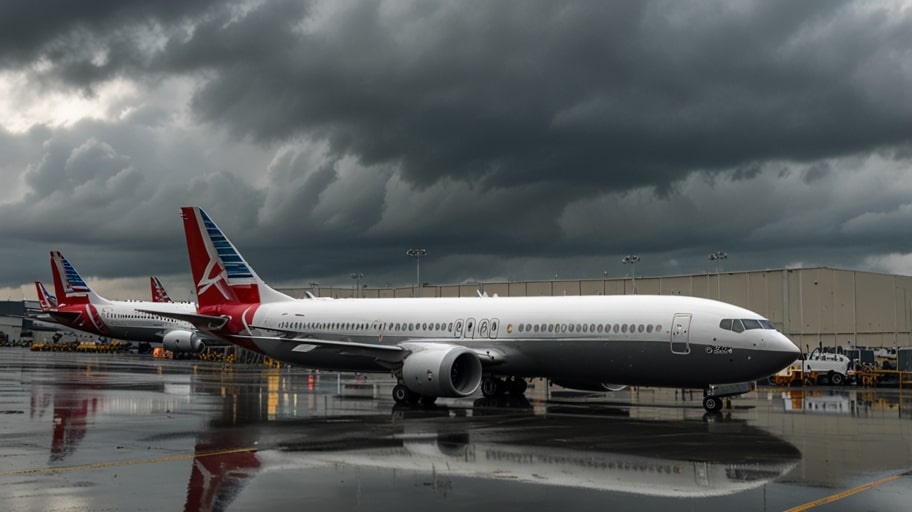Today, Boeing lost 8% of its value because of a lengthy machinists’ strike and rising concerns about safety. Facing years of controversies, it is tough for the company to recover as production delays and tough rules weaken its chances in a global market.
Interrupting Work Production
Boeing is not producing the 737 MAX jets because machinists shut down production during a month-long strike. The walkout is currently being held because of differences in wages, and a solution is not in sight. Since Boeing factories are on hold in Seattle, planes are not reaching airlines, which is putting additional financial strain on the company, as its expenses rise.
Safety Scandals Resurface
The latest safety questions have prompted people to question Boeing’s approach to quality control. A 737’s landing gear malfunctioning during a recent landing provoked investigations by the federal authorities. The FAA is conducting more reviews and asking for certain fixes. Boeing’s trust and brand power will weaken since people have already lost faith in aviation after crashes.
Financial Strain Deepens
The aeroplane maker is facing bigger financial challenges as losses keep increasing. The strike is estimated by analysts to cost $1 billion every month. The company’s debt keeps rising due to the cost of not delivering on time. Some worry that Boeing will manage to fill its financial gaps by either discharging employees or seeking more money.
Competition Is Gaining Strength
Because of Boeing’s troubles, many airlines turn to Airbus for new aircraft leases. More people are choosing Airbus’s A320neo over Boeing’s 737 MAX, reducing Boeing’s market share. Experts in the industry say that Boeing’s delays could allow Airbus to take over the narrow-body jet market gradually.
Leadership When Things Go Wrong
CEO Ortberg is under increased pressure to solve the crisis. So far, there has been little progress in cultural change and transparency. Many point out that for Boeing to regain confidence, its management ought to solve the strike and handle safety issues fully.
Supply Chain Challenges Persist
Because of the pandemic aftermath, Boeing’s global supply lines are dealing with even more bottlenecks. Firms may delay raising production since they fear clients won’t pay their bills. Therefore, delays become more frequent and airlines may review their orders and consider buying planes either from Airbus or regional firms.
Regulatory Hurdles Intensify
Both the FAA and foreign regulators are upgrading their control and requesting strict testing of Boeing’s production. The cost of following new regulations is exceeding expectations which takes resources from new business ideas. If Boeing fails to obey regulations, their aircraft may be pulled from use, hurting their reputation and finances.
Global outcomes of the crisis
Boeing’s struggle is affecting markets around the world, as airlines’ stocks tend to decline with delays in deliveries. Boeing jets are a key part of operations for Asian and European airlines, which now face major challenges. Because of Boeing’s fewer orders, there is pressure throughout the aerospace sector, mainly on the smaller suppliers.
Path to Recovery Uncertain
Boeing’s ultimate challenge is to get workers back and reestablish faith. Currently, negotiations with machinists are not progressing, as both parties are quite far from finding a middle ground on what the machinists will receive. Analysts foresee it taking weeks to solve, which may delay the company’s aircraft production and push Boeing to show strength in a fiercely competitive field.
Investor Sentiment Wavers
There is less confidence about Boeing among Wall Street companies. The stock’s downturn suggests fears that the crisis will continue for a while. Even though certain investors see the stock as a possible investment, some analysts point out that Boeing’s improved performance has been extremely gradual in the past. A well-planned strategy is very important to turn the ship around.
Long-Term Stakes High
The company must work hard to reestablish faith in its reputation for moving forward. The company should strike a balance between workers’ needs, improvements in safety and good financial management. Since Airbus is progressing and there are new rivals, Boeing’s success depends on its ability to innovate and provide reliable planes.
